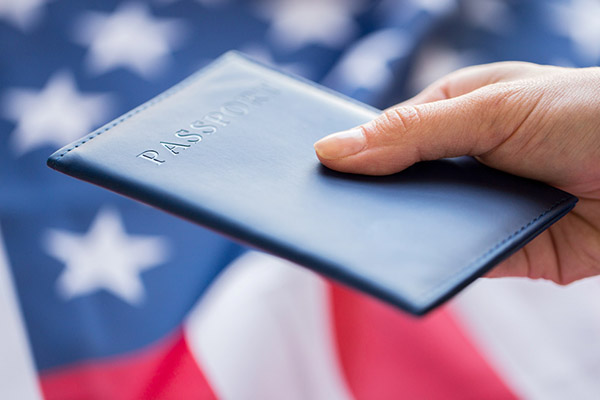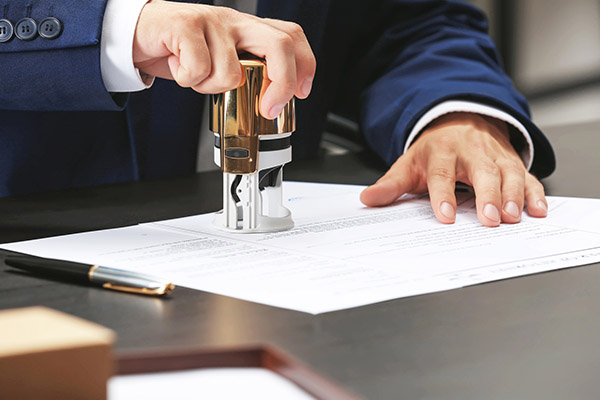When you’re getting a document notarized, proving your identity is an important part of the process. But how many forms of ID for notary services do you actually need? To get something notarized, you typically need to show one valid, government-issued photo ID that includes your signature. However, this may change depending on several factors, including your state’s laws, the type of document and the notary’s own discretion.
In this blog, we’ll break down everything you need to know about ID requirements for notarization, including when two forms of ID may be necessary, which IDs are acceptable or not, and what to do if you’re missing proper ID. We’ll also explain how First Class Signing makes the process easier with trusted mobile notaries across the country.
When Are Two Forms of ID Required?
In most cases, a single valid government-issued photo ID is enough. But sometimes, a notary may ask for a second form of ID, especially if:
- Your primary ID is damaged or expired.
- The name doesn’t match the document.
- The ID lacks a photo or signature.
- Your state requires it for certain documents.
Some states are strict about the type of ID they allow, while others leave the decision up to the notary. If there’s any doubt about your identity, a second ID helps confirm who you are.
Primary Acceptable IDs for Notarization
Not all IDs are created equal. Here are examples of commonly accepted forms of government-issued identification:
- Valid state driver’s license
- State-issued ID card
- S. passport
- Military ID
- Permanent resident card (green card)
- Foreign passport (accepted in some states)
- Tribal ID (if allowed by state law)
These IDs typically include a photo, signature and physical description, which are all important details for identity verification.
State-by-State Differences: What To Know About Expired or Digital IDs
Some states allow expired IDs (within a set timeframe), while others do not. For example:
- Virginia allows expired IDs if they expired within 5 years for signers who live in an assisted living facility or nursing home.
- California does not allow expired IDs.
- Texas may allow some expired IDs with extra evidence.
- Louisiana, Wyoming and Colorado may accept digital driver’s licenses.
Always check your state’s guidelines or ask your notary to confirm what’s allowed.
Acceptable Secondary or Backup IDs You Can Use
If your main ID is missing a signature or photo, or if the notary is unsure, they may ask for a secondary ID such as:
- Utility bill with your name and address
- Work or company badge
- Bank statement
- Insurance card
- Voter registration card
Important: Not all secondary IDs are acceptable for all documents. In many cases, they’re only used to support a primary ID that’s incomplete or questionable.
Know Before You Go: Unacceptable IDs
Some IDs may look official but cannot be used for notarization. These include:
- Social Security cards
- Birth certificates
- Credit or debit cards
- Library or gym membership cards
- Student IDs (in most states)
- Marriage certificates
- Temporary or paper IDs
These documents usually lack a photo or signature; both are required to confirm your identity.
What If You Don’t Have Valid ID?
If you lack acceptable ID, some states allow testimony from a credible witness — a person known by you and the notary who can vouch for your identity. This option is often used in emergency situations or when working with elderly signers.
However, credible witnesses must be impartial and cannot benefit from the transaction. Rules vary by state, so it’s best to ask your notary if this option is available.
Why Are Notaries So Strict About IDs?
Notaries are legally responsible for confirming your identity before they witness or notarize any document. This protects everyone involved and prevents:
- Identity theft
- Forgery
- Legal disputes
- Document rejections
Failing to verify ID properly could void the notarization — which can cause serious problems for legal, financial or real estate documents.
Best Practices for a Smooth Notarization
- Check if your state allows expired or digital IDs.
- Bring a valid, government-issued photo ID.
- Let your notary know if your ID doesn’t match the name on your document.
- Have a backup ID ready if your main one is damaged or missing info.
- Ask about credible witnesses ahead of time if needed.
- Don’t sign your document until you’re with the notary.
Frequently Asked Questions
Can I use an expired ID for notarization?
Some states allow it if the ID expired recently. Others require it to be current. Check your local rules.
What if my ID doesn’t match the name on my document?
Bring legal proof of the name change, such as a marriage certificate or court order.
Can I use a photocopy of my ID?
No. You must present the original, physical ID.
Can I use a temporary driver’s license?
Usually not. These are easy to alter and may not have required features.
Can someone else bring my ID for me?
No. The signer must appear in person with their own ID.
What if my ID doesn’t have a signature?
You may be asked to present a second form of ID that does include a signature.
Can I use a digital driver’s license?
Only in a few states (like Louisiana, Wyoming, Florida, Colorado) and only if the notary can verify its validity.
Can a foreign passport be used?
Yes, in many states — especially if issued by a recognized government, and in English or with a certified translation.
Whether you need a RON or mobile notary, First Class Signing is here for you. Request a signing today.
Need a Signing Today?
First Class Signing Service’s home office is in Livermore, California, but we pride ourselves on delivering all-in signing solutions to clients nationwide, covering all 50 states and four U.S. territories.
What sets us apart is our exceptional team of 50,000-plus highly qualified signing agents who are dedicated to providing reliable and efficient signing services with utmost care and professionalism.





